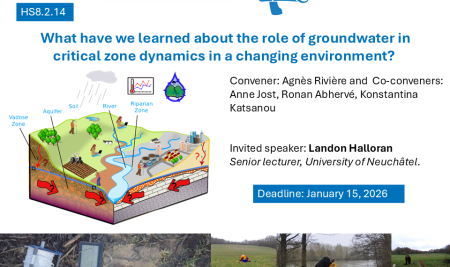Thèse Yuke Xie
Soutenance
Nous sommes très heureux de vous informer de la soutenance de thèse de
Yuke Xie
portant sur :
Impact of Deep Generative Models for solving non-linear Inverse Problems: application to Seismic Imaging
qui aura lieu le
Lundi 3 novembre 2025 à 14h00
Mines Paris – PSL, 60 boulevard Saint-Michel 75006 PARIS
Salle V107 (Amphi Schlumberger)
devant le jury composé de :
Mme Alessandra Ribodetti Chargée de recherche Université Côte d’Azur Rapporteure
M. Sylvain Le Corff Professeur Sorbonne Université Rapporteur
M. Gilles Lambaré R&D Manager Viridien Examinateur
Mme Hélène Barucq Directrice de recherche INRIA Examinatrice
M. Hervé Chauris Professeur Mines Paris–PSL Directeur de thèse
M. Nicolas Desassis Chargé de recherche Mines Paris–PSL Co-directeur de thèse
résumé :
Nonlinear inverse problems in seismic imaging, particularly Full Waveform Inversion (FWI), are ill-posed and face challenges such as non-uniqueness, slow convergence, and limited ability to quantify uncertainty. This thesis presents a Bayesian framework that incorporates deep generative models, specifically Generative Adversarial Networks (GANs), to provide data-driven priors that constrain solutions to geologically plausible structures. Variational inference techniques are applied to approximate the posterior distribution, enabling scalable inversion that accounts for uncertainty while remaining consistent with physical principles. To address the high dimensionality of the problem, the inversion is reparametrized in the latent space of pretrained generative models, improving convergence and stability. A GAN-based latent reparameterization is introduced as a learned preconditioner, accelerating optimization and reducing sensitivity to local minima. Additionally, a diffusion-based Bayesian regularization strategy integrates generative diffusion models directly into the FWI gradient, avoiding instability in noisy intermediate states. Numerical experiments demonstrate proof of concept, suggesting that combining generative models with Bayesian inference can yield improved reconstructions, meaningful uncertainty estimates, and more efficient computations compared to conventional methods.

